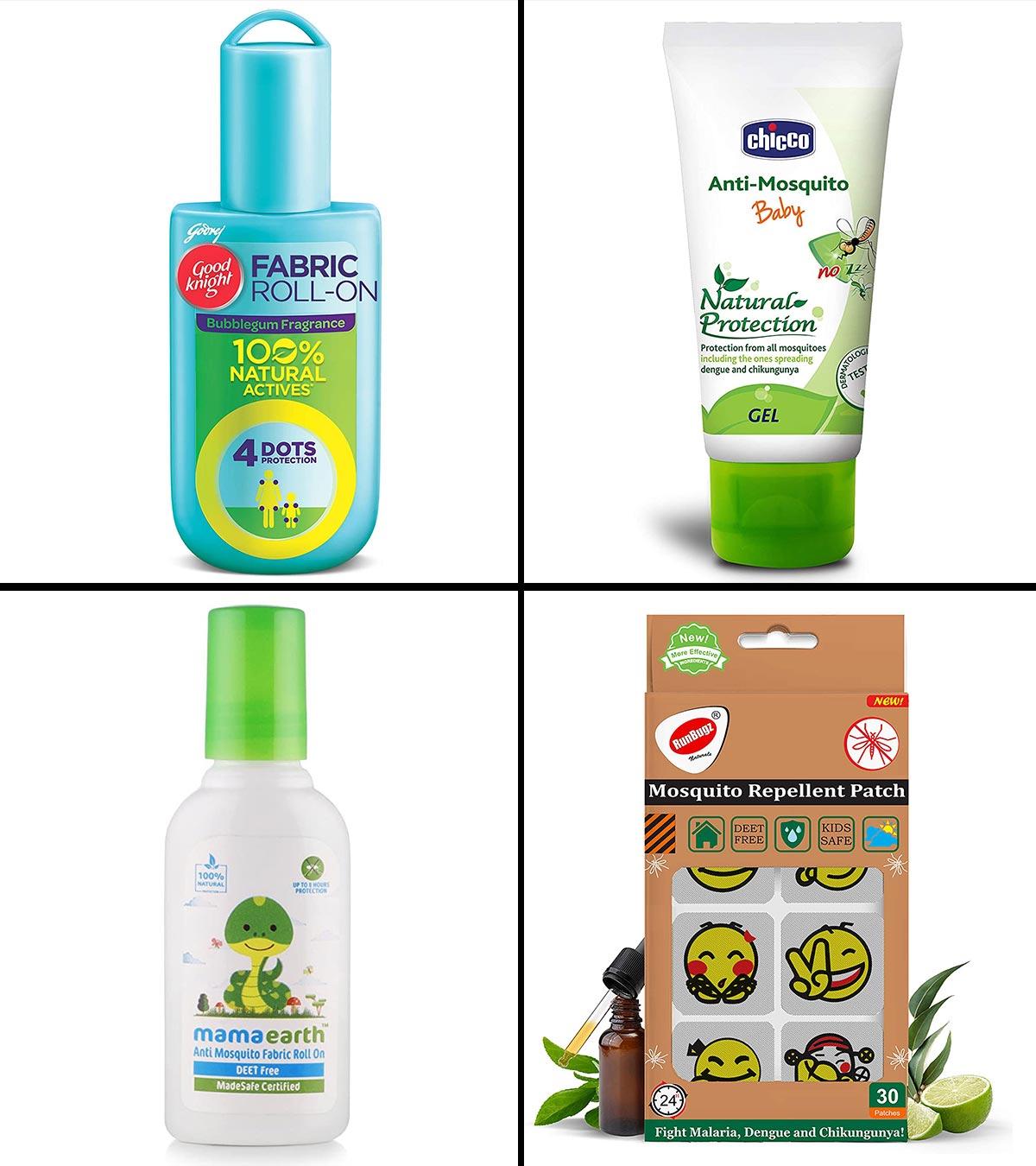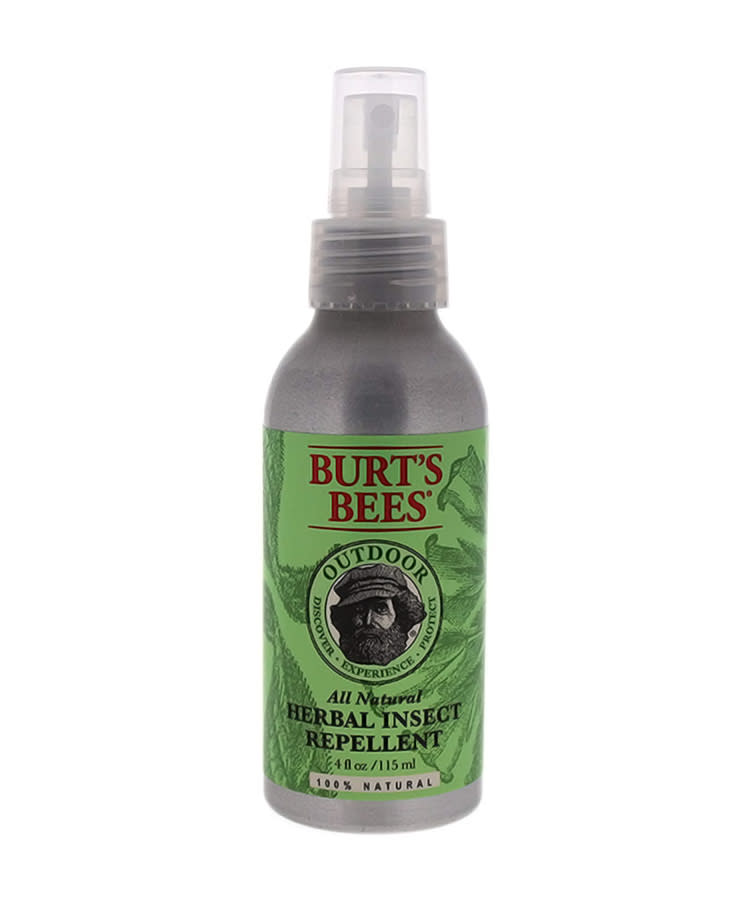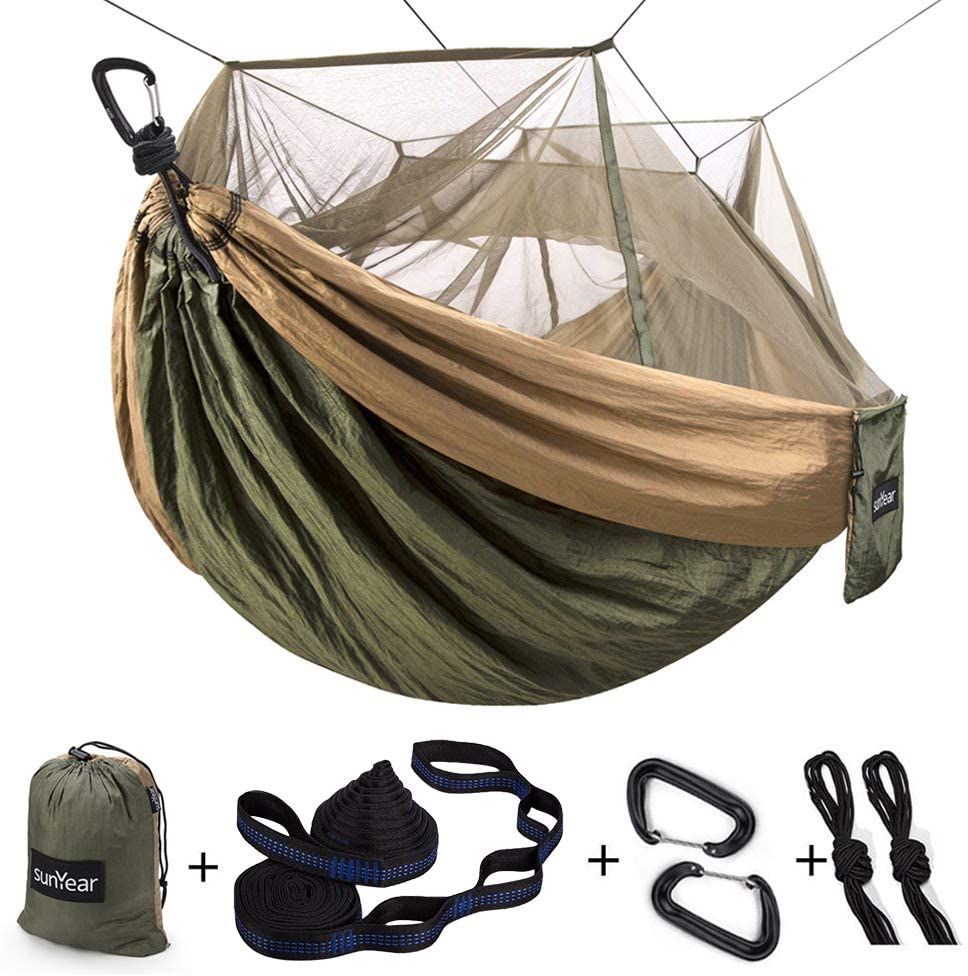Best Mosquito Repellent For Kids

See also:
Home safety and healthy living Shopping summer ideas Beauty and wellness Kids Home & Garden Products Oh, summer! Pool days, sunshine, and outdoor adventures. The one thing that no one really looks forward to is the summer heat. Bug bites. Ticks and pesky mosquitoes can take the joy out of summer like ice cream melts. For your children’s protection and to allow you to have fun outside, our editors recommended the best insect repellents. Also included were safety and health tips for parents from a pediatrician.
It is important to avoid tick- and insect-borne diseases. Dr. Sophie Balk is an attending pediatrician at Children’s Hospital at Montefiore and Professor of Medicine at Albert Einstein College of Medicine. Unfortunately, there are insects outside as well! Certain diseases can spread by some insects and cause severe health problems in adults as well as children. A good way to avoid getting sick is to check for ticks outdoors and use insect repellent.

Here are 10 of the Best Kids Bug Sprays in 2021
Independently, our editors research and test the products to recommend them. You can read more about us. Our chosen links might earn us commissions.
Mozzies and other insects are quick to feed on warm summer nights. While the bites can be painful enough for adults, little ones may find it unbearable. This is why you should always have a safe bug spray to use during the summer. Make sure you read the label before you buy a bug spray.
We know that not all bug sprays work the same. So we have gathered the top ones for children.
Our Top Picks OFF! Amazon – Insect & Mosquito Repellent
It is easy to use, child-friendly and leaves a light citrus scent until fully dry.

The Top 3 Best Bug Repellent Tips For Children by Ewg
It is that time of the year again: The ticks and mosquitoes are back in full force. So what bug repellent ingredients do EWG scientists recommend for kids? Our top picks are DEET, Picaridin and IR3535. These ingredients are safe and provide protection against a wide range of ticks and biting insects.
To determine the concentration percentages of active ingredients, check the labels. Maximum 10 percent DEET, maximum 20 percent Picaridin and maximum 20 percent IR353535 should be included in the product for children.
One exception: If you’re using DEET to protect kids in an area known for ticks’ carrying Lyme disease bacteria or for Zika outbreaks, a concentration of 20 percent to 30 percent may be appropriate. You can find more information in our Guide to bug repellents and links below to the Centers for Disease Controls’ list of insect-borne illnesses. Contrary to popular belief, bug repellents with higher concentrations – such as old-school 100 percent DEET – are not necessarily more effective and may even be harmful. To avoid that risk, we recommend steering clear of DEET products with concentrations over 30 percent. The concentration determines the protection time. Choose a spray that is lower in concentration to protect yourself from any potential bug-borne illness.
Can I really use DEET? This seemed to be dangerous.
DEET can still be used safely when administered as directed. Still, after reviewing the evidence, EWG researchers concluded that it is best to use the lowest effective concentration of DEET, even though it’s effective and generally safer than is commonly assumed.
Picaridin makes a good alternative to DEET. It effectively repels both mosquitoes and ticks and, compared to other repellents, is less likely to irritate eyes and skin.
EWG research has found that many “natural” bugs repellent ingredients, such as castor and cedar, cloves, cinnamon, clove, geraniols, lemongrasses, peppermint and rosemary, aren’t always the best.

We Have The Top Mosquito Repellents For 2021
1. Sawyer Premium Mosquito Repellent
This Sawyer product is available in a lotion, spray or pump. It contains Picaridin which, at 20%, repels both ticks and mosquitoes. Sawyer makes claims that this product works for up to 12 hour, but the evidence suggests it can work for about 8 hours. Sawyer clearly states in his instructions that this product should be used for at least 8 hours. That’s not to say it won’t work after 12 hours, but the effectiveness decreases considerably with time. This insect repellent works well on ticks, is safe for infants and children over 6 months. It doesn’t have strong odors and no DEET. Additionally, it is less greasy than DEET and effective in protecting against Zika, EEE and West Nile Virus mosquitoes. It also protects very well against biting flies, gnats, chiggers, and sand flies. In our testing, we found it easy to apply with the pump-spray version, but even easier with the continuous aerosol sprayer. If space permits, we recommend carrying the bigger sprayer bottles (6 ounces but about the same volume as hairspray bottles), After drying, absorption and some initial greasy feeling it turned into a pleasant protective coating. It was almost indistinguishable from the strong Lemon Eucalyptus or DEET odors.
We wore it for 4 hours during a long hike through New England woods in June, a prime time for both ticks and mosquitoes. We applied it to ourselves and two kids, ages 6 and 8. Not only did we not get any bites, but we weren’t constantly annoyed by (and swatting at) buzzing insects around our heads. The protection it offered was excellent, and it could have been extended if you stayed up late into the night. We applied it to all skin exposed: necks, arms, legs and ankles. We applied it to our faces by spraying the product onto our hands. This will prevent us from inhaling or getting the oil into our eyes, especially with children. Also, we lightly applied it to our hair and clothes. It was very effective and our overall experience with the product was great. The kids preferred the sprayer to the more ominous options. I was not worried about them getting ticks. My children slept peacefully the next night. It sells usually for around $8-10. It depends on whether you purchase the pump or the lotion. However, we prefer to use the sprayer. Interested? See the Sawyer Premium Insect Repellent Here 2. Natrapel Mosquito Repellent.
Picaridin 20 percent is also available in this product. It has a similar effect to Sawyer. Picaridin 20% can kill ticks and mosquitoes up to eight hours after application. The Picaridin 20% product claims 12 hours of protection. We think that 8 hours is a better estimate. Our testing showed that this product is just as effective and as efficient as the Sawyer one. This product was simple to spray with the non-aerosol continuous sprayer. It had excellent coverage and protection from a large number of insects. They were the exact same as those in the Sawyer product. The reason it ranks #2 is twofold. It is a bit more difficult to purchase and find it than Sawyer products. Additionally, Amazon tends not to sell it during summer peak times when people are most in need. A second problem is that the sprayer sprays less evenly than the Sawyer. It tends to produce drops and clumping in addition to misting. Similar to a spray-on sunscreen. It also contained too many perfumes, according to our assessment.
One of the advantages of Picaridin is that it’s essentially odorless, which is a nice departure from DEET. They added a fragrance to this and it didn’t suit us, nor did our children. These are minor nitpicking issues that make this the best insect repellent for children. It is also extremely easy and effective. The Sawyer insect repellent is a great choice that can protect your family for many hours in any swampy environment. Similar to the Sawyer product we apply this on all exposed skin: necks, arms, legs, ankles and legs. The product was applied to our faces by first rubbing the cream onto our fingers. A little bit was also applied to hair and clothing. Usually sells for about $8 for a 6-ounce sprayer. Interested? Check out Natrapel Insect Respellant here. REPEL Insect & Mosquito Repellent.
The oil of lemon eucalyptus is a naturally-derived insect repellent that has been approved by the CDC to repel ticks and mosquitoes. It also reduces the risk of getting sick. This 30% product, which contains p-menthane diol from lemon Eucalyptus Citriodora Oil, is DEET free and repels both mosquitoes & ticks. We found the scent to be very strong during our tests. The smell isn’t necessarily strong like DEET. However, it has a distinct lemon scent. It is much more pleasant than DEET’s odor. The repellent contains natural ingredients, which we consider an advantage. REPEL states that the repellent is completely free of fragrances, oil distillates and dyes as well as perfluorinated chemicals, bronopol, DMDM hydantoin (BHA), triclosan, urea, Quaternium-15, propylene gl, butylene glu, sulfates. However, it does contain ethanol so do not apply near a source of flame, such as campfire, grill, or cigarette. While the product states that it will repel mosquitoes for eight hours, it was tested and showed it to work well in our testing.
This repellent works almost as well for mosquitoes as products containing 15% DEET. In our testing, we didn’t think this worked quite as well as Picaridin-based repellents like Sawyer or Natrapel, but that was very specific to mosquitoes. This insect repellent, which is DEET-free and safe for adults and children 3+, is great. Interested? Want to know more? Avon Skin-so-Soft Mosquito Repellent.

Safety and effectiveness considerations
Safety. The best mosquito sprays and tick repellents contain either DEET, Picaridin, or IR 3535. Oil of Lemon Eucalyptus may be an alternative, although it is less effective. According to the EWG and CDC, each of these ingredients has a slightly different safety profile. Here’s a detailed look at each. For any type of bug repellent, it is best to use it once a day and wash it thoroughly before going to bed. Any negative side effects of bug spray ingredients are assumed to be compounded with chronic exposure, and the longer you leave it on the skin, the more is absorbed into the body. We are very cautious about the ingredients of baby lotions.
DEET Safety. DEET safety. The single best mosquito and tick repellent in the world has been known to have been in use for over 60-years. DEET, however, has an unfortunate reputation. It was first reported in 1980 as having severe side effects. However, no evidence exists to suggest that DEET was the cause of these illnesses, and more recent research has demonstrated no severe adverse events if DEET is used as recommended. Important point. DEET should only be used when recommended. For any bug sprays, you should always follow the instructions and never over-apply. DEET is recommended by doctors as the best insect repellant for those visiting areas with tick-borne diseases. DEET is not recommended for use in infants under 6 months of age. The use of DEET in high mosquito risk areas is encouraged from 6-24 months. A 20%-30% DEET product can be applied with only one daily application. Between 2-12 years, you can use a 20-30% DEET products with no more than 3 per day. Teens and adults can use products containing between 30-50% DEET, with instructions for application.
Picaridin Safety. Bayer created this synthetic compound in 1980. The product was widely used throughout Europe and Australia. However, it has only been introduced in the US in 2005. It is marketed as highly effective and “less smelly” than DEET, and is generally considered the best DEET alternative for protecting kids against ticks and mosquitoes. Picaridin is very safe and has low levels of toxicology in both children and adults. Picaridin, in general, is more likely to cause irritation of eyes and skin than DEET. This makes it a great option for children or adults suffering from allergies. Picaridin is recommended for children older than 6 months.
IR3535 Safety. Another synthetic compound was developed by Merck in the 1980’s. This synthetic amino acid affects the insect’s senses of smell and makes them less likely to associate you with a delicious meal. Picaridin is more attractive because it doesn’t smell as bad as DEET. As with Picaridin the safety profile is high. The World Health Organization only found mild eye irritation in human beings (do not get it in your eyes), it has no long-term detrimental effects on humans and the environment and is recommended by CDC. This insect repellent is much more common than Picaridin or DEET, and it’s most commonly found in Avon Skin-So-Soft lotions and sprays.
Oil of Lemon Eucalyptus Safety. This alternative repellent against ticks and mosquitoes is a naturally-derived product that has gained a lot more attention in recent years. Lemon Eucalyptus Oil, which is extracted from the tree of the Eucalyptus, is refined to raise the amount of a special chemical (PMD) that works well for repelling insects and ticks. Unfortunately, synthetic PMD and Oil of Lemon Eucalyptus are new products on the bug repellent market. The safety data for children below 3 years are not available. It is not that there are any signs of toxic effects. Rather, it is because there is no evidence either way (yet). So we do suggest avoiding it with young children until more data become available. It is important that you note that the safety and efficacy of natural Lemon Eucalyptus Oil are not as good as Oil of Lemon Eucalyptus.
Effectiveness. Parents want the best mosquito repellants to be both safe and effective. It is difficult to answer this question because there are no independent scientific data that compares the effectiveness all-natural insect repellents with the effectiveness any of four CDC-recommended repellents (DEET/Picardin, IR353535, Lemon Eucalyptus Oil, and IR353535). Problem is, the majority of research on bug sprays and their effectiveness has been sponsored by companies that make them. This makes it hard to assess the true effectiveness of these products without biases or conflicts. Picaridin and IR353535 are next effective. Oil of Eucalyptus is moderately effective. DEET seems to be effective against ticks as well as mosquitoes. No matter what bug spray you use, do not apply to the skin (arms or legs), don’t touch the eyes, ears, mouth, and nose. Do not spray directly onto the face. If you follow these instructions, the spray will not only be effective, but you will also reduce the likelihood of irritation. Let’s take a look at the different effectiveness levels of insect repellents.
DEET Effectiveness. DEET effectiveness is unmatched. DEET has an inverse relationship to its effectiveness at repelling insects and ticks. A repellent with a higher percentage will also be more effective in keeping them away for longer periods of time. In general, a product with a 10% DEET content is effective for about 2 hours, and then every 5% increase in DEET adds about another hour of protection. A 15% DEET product is effective for three hours. An 25% DEET product is effective up to five hours. The maximum DEET recommended for adults is 30%. It works for approximately 6 hours.

This is the Best Baby and Kid Bug Spray
To help you enjoy the most important moments of your life, we have provided links to third-party products. Links on this site may lead to a commission.
Enjoying the great outdoors with your kids is wonderful. However, mosquitoes are a real nuisance. Itchy bugs can be a nightmare for parents. However, if your area is prone to insect-related disease, you need to make sure that the bug spray doesn’t get infected. That’s why bug spray is an important medicine in the home. What is the best insect spray for children and babies? Here’s what to know about baby-safe bug spray, plus our top picks for mosquito repellent for babies and kids.
Here are some facts about deet bug spray
DEET is the common name for N,N-Diethyl-m-toluamide. Developed by the United States Army in 1946, DEET is the most common ingredient in US-sold insect repellents and generally considered the gold standard in effectiveness. DEET bug spray can be directly applied to the skin. The purpose of DEET is to repel, not kill, insects. By messing with the neurons on their antennae and mouths, DEET forces mosquitoes, flies, gnats and chiggers to back up and buzz off.
But is DEET safe? Although DEET has been linked to potential dangers over the years, there is now solid evidence that DEET can be used safely for babies as young as 2 months. CharlRee-Atiemo MD FAAP is a Baltimore-based pediatrician. “DEET has been well researched for human use and is safe and effective for anyone over 2 months of age.” Especially when you need to prevent insect-related diseases, the American Academy of Pediatrics (AAP) says DEET is the best bug spray for babies. Lyme Disease can be transmitted by ticks. In addition, mosquitoes can carry West Nile virus and Zika.
DEET insect spray is available in various concentrations, from 4 percent to 100 percent. AAP and CDC suggest that bug repellents be applied to children as young as 2 months. The protection offered by each concentration of bug repellent is approximately the same, but it does vary in how long they last. The protection provided by a 10 percent DEET mosquito spray is good for two hours. However, the 30-percent concentration provides protection for five hours. (Studies have shown that repellent with more than 30 percent DEET doesn’t actually offer any added protection.) The lowest amount of DEET that will provide you with the best protection is recommended. Extremely rare instances of skin irritation can result from using excessive DEET or in high amounts. DEET bug spray should only be used on infants aged 2 to 3 months.
What can I do to keep mosquitoes away from my children?
EPA-registered repellents for insects that have picaridin (DEET), picaridin (IR353535), or oil of Lemon Eucalyptus are recommended. The American Academy of Pediatrics (AAP) recommends products with up to 30% DEET for children over 2 months old. Do not use products containing DEET on children younger than 2 months old.Aug 2, 2016
Which Is The Most Effective Mosquito Repellent?
Best Overall: Sawyer Premium Insect Repellent.Best DEET: OFF! … Best Natural: Repel Plant-Based Lemon Eucalyptus Insect Repellent.Best for Kids: BuzzPatch Natural Mosquito Repellent Patch (20% Off Coupon: ROADAFFAIR20)Best Wipes: Cutter Family Mosquito Wipes.More items…*Oct 10, 2021
What is the best insect repellent for toddlers?
- Repel Insect Repellent Scented Family Formula.
- FamilyCare Insect Repellent OFF
- Ben’s Tick & Insect Repellent Wilderness Formula.
- Avon Skin-So-Soft Bug Guard Plus Picaridin Spray.
- Cutter’s Lemon Eucalyptus Incet Repellent.
- California Baby Natural Bug Blend Bug Repellent Spray.
.Best Mosquito Repellent For Kids
























:fill(white)